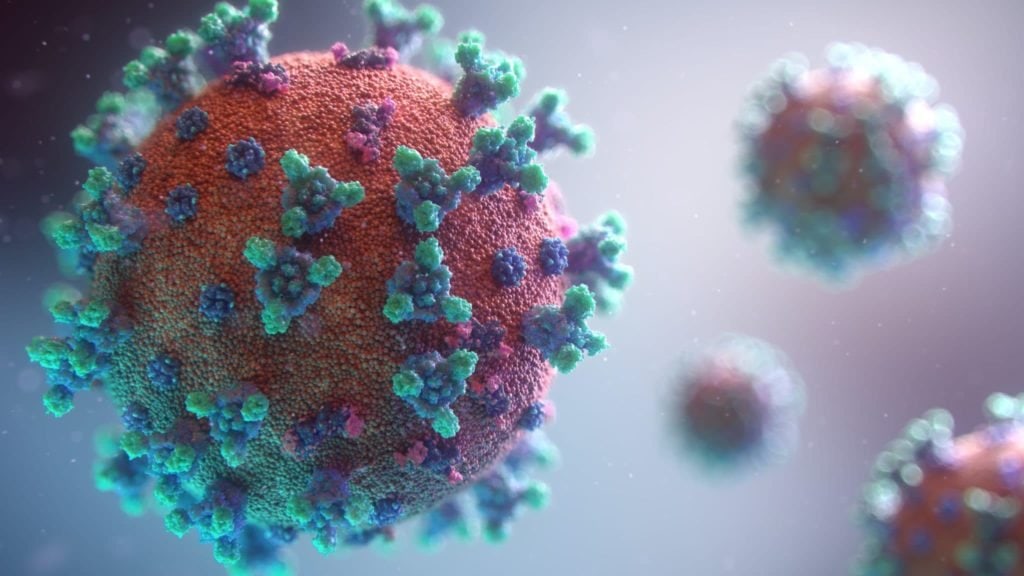Viruses Reactivated After COVID-19 and Its Vaccine May Be Linked to Lymphopenia: Study
After a COVID-19 infection or inoculation with its vaccine, some people develop reactivated and recurrent infections, including herpes, Epstein-Barr virus (EBV), urinary tract infections (UTIs), and even COVID-19.

Persistent Lymphopenia
"Typically, with any infection, white blood cell count can go up or go down, and over time, it restores back to baseline," said internal medicine physician Dr. Keith Berkowitz. "But in this case, we are seeing persistent suppression long term, and I think it's a T-cell effect that's happening. "Dr. Berkowitz has treated over 200 long-COVID and post-vaccine patients. He said that many of his patients tested as having low T-cell counts.
Typically, low immune cell counts after an infection or vaccination stabilize when patients undergo a subsequent infection. However, his patients continued to have low T-cell numbers despite an ensuing illness.
Persistent lymphopenia is a hallmark of immune deficiency, which can put people at risk of opportunistic infections, including reactivated viruses and bacterial infections such as UTIs.
Dr. Berkowitz said that several of his female patients with low T-cell counts also report persistent UTIs.
While UTIs tend to affect older women, he has found that younger, middle-aged women are similarly affected with persistent infections, suggesting potential immune deficiencies.
Lymphopenia and COVID-19
It is uncertain why lymphopenia occurs after COVID-19 infection and its vaccines.However, psychiatrist Dr. Adonis Sfera, who has published several studies on COVID-19, said that both the virus and its remnant spike protein may be able to bind to and kill lymphocytes, leading to lymphopenia.
The virus and its spike protein can bind to ACE-2, CD4, and CD8 receptors, all of which are present on the surfaces of T cells.
Since lymphopenia can be a sign of the body still fighting an infection or its remnants, Dr. Sfera believes the persistent lymphopenia reported in long-COVID and post-vaccine patients suggests that the virus or its remnants are still lingering.
Dr. Sfera said that COVID-19 and HIV are similar in that both seem to cause lymphopenia in T cells and activate human endogenous retroviruses, or HERVs.
T helper cells are among the lead cells in the immune system hierarchy. These cells regulate the behavior of other cells and notify other immune cells if they should continue to fight an infection or stop.
With a loss of T helper cells, the immune system can become hyperinflammatory and self-damaging. This may also explain the lymphopenic yet hyperinflammatory states that sometimes manifested in patients several days after the initial infection early in the pandemic.
"The helper T cells are the ones that mainly have to do with immune tolerance, just like with HIV," said Dr. Sfera.
Persistent lymphopenia, apart from leading to immune deficiency, also puts the body at risk of immune exhaustion.
Lymphopenia Is Treatable
If an unresolved infection or disease leads to persistent lymphopenia, treating the condition causing the lymphopenia is usually the first step in returning lymphocyte counts to baseline. Reactivated and recurrent viruses also prolong the lymphopenic state, as the body is made to direct its attention toward fighting the infection.Certain nutritional deficiencies, including zinc, folate, and cobalamin (vitamin B-12), can cause lymphopenia. High iron levels can also put a person at an increased risk of infection, which may exacerbate lymphopenia.
Many of Dr. Berkowitz's patients who have low T-cell numbers also have an overstressed nervous system. He found that once he calms down the nervous system using intravenous hydration therapy and supplements that encourage the body to rest, the immune system starts to recover by itself, with T-cell levels returning to normal.
N-acetylcysteine, a precursor to glutathione, an amino acid in the body, can also help regulate the immune system and encourage lymphocyte proliferation. Patients with severe lymphopenia may be treated with immunoglobulin shots to ensure some immunity. Injections with proteins that promote immune cell growth may also boost lymphocyte numbers.
Reposted from: https://www.theepochtimes.com/health/viruses-reactivated-after-covid-19-and-its-vaccine-may-be-linked-to-lymphopenia-study-5523317





.png)


Comments
Post a Comment